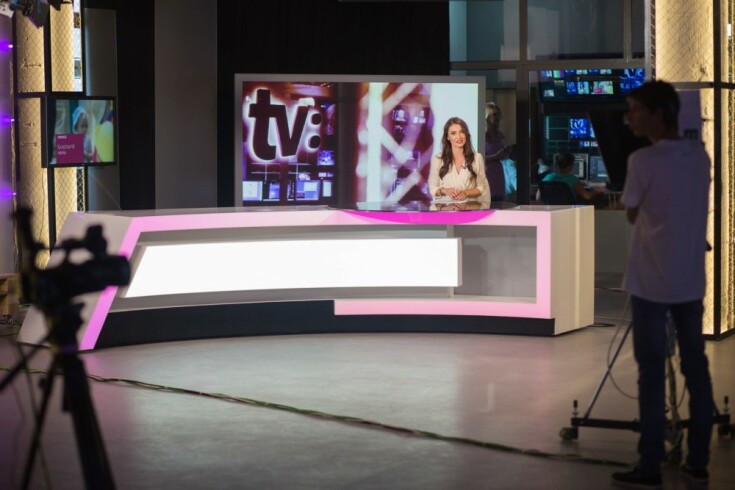As we celebrate International Women’s Day, it’s important to acknowledge that women are still far less likely than men to be heard, read about or seen in the news. They are also less likely to feature as experts and commentators. To achieve gender equality in media, we have still got a long way to go.
Yet, although the progress is slow, more female-focused media brands are coming to market to meet the growing demand for news and insight focused on women. Often built by female media entrepreneurs, these companies – including those supported by MDIF – play a key role in creating fair gender portrayals, as well as challenging stereotypes, under-representation and insufficient media coverage.
“We are thrilled to see a growing number of female-focused media all around the world, including among media we support,” said Marie Nemcova, MDIF COO. “They recognize that women and girls are an important demographic representing half of the world’s population and that they face challenges and care about topics that are too often ignored by the male-dominated establishment media.”
Giving women a voice
In South Africa less than 20% of sources quoted in the news are women. QuoteThisWoman+ (QW+), a participant in our South Africa Media Innovation Program (SAMIP), is working to change that. Established in 2019 by Kathy Magrobi, who was frustrated by the endlessly gendered portrayal of women in South African news, QW+ was created to give journalists easy access to diverse sources on a range of topics and to amplify the voice of women in the media. Their database of more than 400 experts in different fields gives mainstream media easy access to women specialists to interview and quote.
In Indonesia, Magdalene.co, a bilingual women-focused publication that received intensive capacity building from MDIF, aims to empower women in the largest Muslim population in world. Established in 2013 by three women journalists – Devi Asmarani, Hera Diani and Karima Anjani – the outlet channels the voices of feminists, pluralists and progressive groups, and covers under-reported taboo subjects on gender and sexuality, such as abortion and LGBT rights in Indonesia’s patriarchal society.
Meanwhile in India, SHEROES, a women’s community platform and MDIF investee, provides a safe and trusted digital social space for more than 20 million women. Founded by Sairee Chahal, SHEROES offers access to information and expert advice on issues like sexual health, education and careers, with gender diversity, remote work, entrepreneurship and leadership being among its main focuses. Since its founding in 2013, SHEROES has helped 100,000 women to become micro-entrepreneurs and 10,000 women to set up as remote workers. It has also counselled half a million through its helpline and answered 100,000 health queries through the platform.
Leading by example
Gender equality in media goes beyond female-focused publications and brands, and includes gender dynamics in the broader media industry, with women in top-management and executive positions playing a crucial role, as recognized by this year’s theme for International Women’s Day “Women in leadership: Achieving an equal future in a COVID-19 world.”
Women-led media provide editorial perspectives that are often ignored by the male-dominated media establishment and offer high-profile role models for female entrepreneurs. Research also points out that higher representation of women in senior leadership roles strengthens innovation, improves the journalistic product and contributes to increased financial performance and better corporate governance.
“In our 25 years of operation, we have worked with numerous women-owned and women-run news businesses,” said Elena Popovic, MDIF Secretary and General Counsel. “There are many standout examples. Led by truly inspiring female media entrepreneurs, many of them have been among our best performing clients.”
One pioneer is RTV21, Kosovo’s leading independent broadcaster, with 24-hour radio and TV channels, broadcast on terrestrial, satellite and IPTV. With co-founders including Aferdita Kelmendi and Xheraldina Vula, the company forged its reputation during Kosovo’s armed conflict with Serbia when the founders were forcibly deported by paramilitaries. Kelmendi is a winner of a Courage in Journalism Award from the International Women’s Media Foundation (IWMF), but her and Vula’s example as media leaders go beyond bravery. As General Director and Deputy General Director, Kelmendi and Vula have overseen the geographic expansion of the company into Macedonia, as well as its expansion across platforms and revenue lines, including a successful events business. And their track record of supporting gender issues includes editing the first magazine dedicated to women’s issues in Kosovo and founding a training center for young women in journalism and conflict resolution.
Another standout woman-led media company with which we have a long relationship is El Búho, an outlet committed to providing independent news to the people of Arequipa, Peru’s second city. Founded by Mabel Cáceres, over time the outlet has transitioned from a weekly newspaper to a magazine format, shifted its focus to investigative reporting and added online content and a weekly televised talk show. Today El Búho is a well-recognised, influential local brand synonymous with quality journalism. Cáceres was named one of 100 Information Heroes by Reporters Sans Frontières and, like Kelmendi, received a Courage in Journalism Award from IWMF.
More recently, we have started working in Moldova with Media Alternativa, whose channel TV8 broadcasts 24 hours a day nationally in Romanian and Russian, and most of whose founders and management are women. TV8 is one of the most important independent television stations in the country and has a strong reputation as a trustworthy source of political information. Re-launched in 2017, its founders include journalists Natalia Morari and Mariana Rata, both with their own shows on TV8 – “Cutia Neagră” (The Black Box), centred on corruption and investigative journalism, and “Politica Nataliei Morari” (Natalia Morari’s Politics), a political talk show centred on recent developments in society and politics.
With so many inspiring examples, the future of women’s media looks bright.
